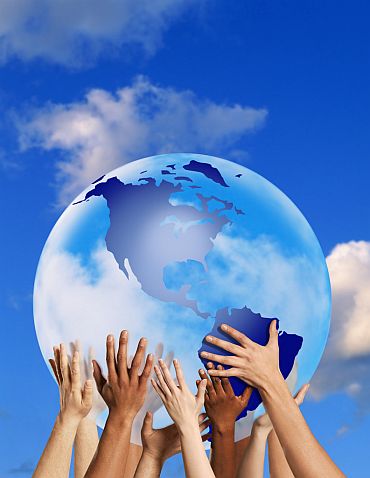
The world has become slightly less peaceful in the past year, says a report compiled by the Sydney-based think tank Institute of Economics and Peace.
The Global Peace Index 2011 notes that while several countries experienced improved levels of peacefulness, others, notably those in North Africa and the Middle East that have been swept up in the political turmoil of the "Arab Spring", have experienced sharp falls in their peacefulness.
Now in its fifth year, the GPI measures the relative peacefulness of 153 countries by looking at both qualitative and quantitative indicators that combine internal and external factors determining a nation's peacefulness.
These include arms imports and exports, violent crime, battlefield deaths, prison populations, potential for terrorism, political stability and the likelihood of violent demonstrations. The Index also seeks to understand how peace impacts global economics and business, and vice versa.
India's rank has fallen seven points on the Index. India now ranks 135 out of 153 countries.
Let's first take a look at the MOST peaceful nations of the world.
Click on NEXT to go further...
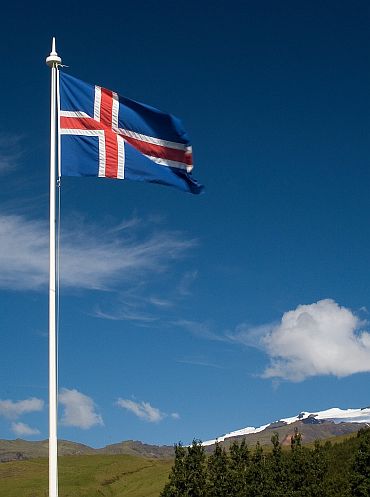
Iceland has regained the honour of being the most peaceful country in the world.
The country had slipped to 2nd position in the 2010 GPI following the unprecedented collapse of the country's economy triggered by the international financial turmoil in September and October 2008.
A member of NATO since its inception in 1949, Iceland has no standing army and military expenditure as a proportion of GDP is the lowest of any European nation.
According to the report, Icelandic society remains essentially harmonious, with measures of safety and security including violent crime, internal conflict and the number of homicides all accorded very low scores. The proportion of citizens who are in jail remains one of the lowest in the world at 55 per 100,000 and it was unchanged in 2010.
Click on NEXT to go further...
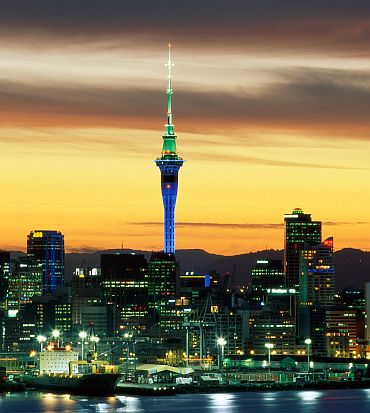
New Zealand, which topped the Index in 2010, slipped to second spot in the 2011 list.
According to the report, there was a rise in the number of internal security officers, which reflects the Labour-led government's plan in 2006 to increase police resources, committing to recruiting and training 1,000 additional police officers over the following three years.
New Zealand's jailed population rose to 203 per 100,000 in 2010, a level notably higher than most other Organisation for Economic Cooperation and Development (OECD) countries (71 per 100,000 in Norway, 96 in France and 133 in Australia according to the International Centre for Prison Studies)
Most aspects of safety and security in New Zealand's society receive the lowest possible scores in the 2011 GPI, including the likelihood of violent demonstrations, the homicide rate and the level of respect for human rights (Political Terror Scale)
Click on NEXT to go further...
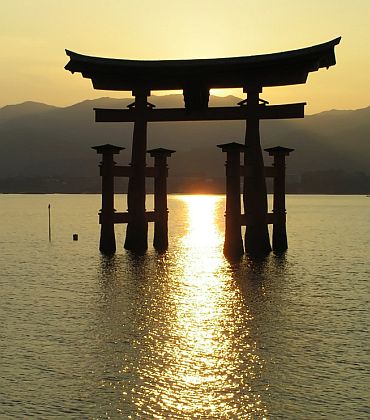
Japan retained its number 3 slot on the Peace Index this year.
Japan's score for political stability was unchanged at the lowest possible level, a decision that was linked to the effect of the devastating earthquake and tsunami and the ensuing nuclear crisis that struck the country on March 11.
While Japan's Self-Defence Forces remain sophisticated and capable (with a tally of 4), the majority of the country's indicators of militarisation are accorded very low scores.
Japan remained free from civil unrest in 2010, while violent crime and homicides are rare and terrorist acts highly unlikely. Respect for human rights is high and stringent laws prohibit the possession of fi rearms, all of which feed into a high overall position in the GPI.
Click on NEXT to go further...
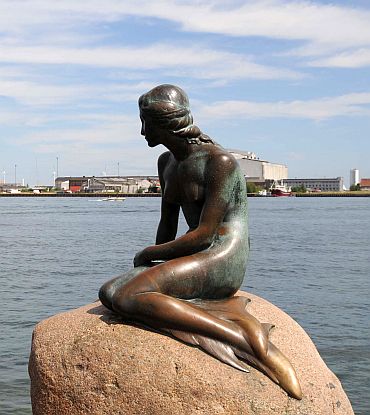
Denmark's GPI score improved from last year, contributing to a rise to fourth place.
The report attributes Denmark's improved performance to the Danish government's move to raise the penalty for illegal gun possession and a consequent shift in the qualitative assessment of the accessibility of small arms and light weapons.
Danish exports of major conventional weapons per head declined to the lowest possible score, alongside Iceland and Norway, below Canada and well beneath Sweden.
Denmark is free from internal conflict, is politically stable and enjoys good relations with neighbouring countries.
Click on NEXT to go further...

The Czech Republic's GPI score improved last year owing to a fall in the likelihood of violent demonstrations amid a steadily recovering economy.
The report states that the level of violent crime is accorded a score of 2 (low), while perceptions of criminality in society, the level of internal confl ict and the potential for terrorist acts are "very low".
The homicide rate is one of the lowest in the OECD, according to the 11th United Nations Office on Drugs and Crime survey, unchanged from the previous year.
The indicator of police and internal security officers per head of population is also accorded a relatively high score (3), notably higher than the other countries in the top ten.
Click on NEXT to go further...

Neutral since the end of Soviet occupation of part of the country in 1955, Austria slipped two positions to occupy the sixth spot on the list.
The country remains free of civil unrest and it continues to enjoy excellent relations with neighbouring states.
Most measures of safety and security in society are accorded low scores in the GPI, notably the level of violent crime and the homicide rate, which remain among the lowest of the 153 nations surveyed.
However, Austria's score for the Political Terror Scale, which measures physical integrity rights violations, worsened slightly from 1.5 to 2 in 2009 as a result of a year-on-year deterioration in the human rights situation as reported by Amnesty International. A score of 2 refers to 'a limited amount of imprisonment for non-violent political activity. However, few persons are affected, torture and beatings are exceptional. Political murder is rare'.
Click on NEXT to go further...
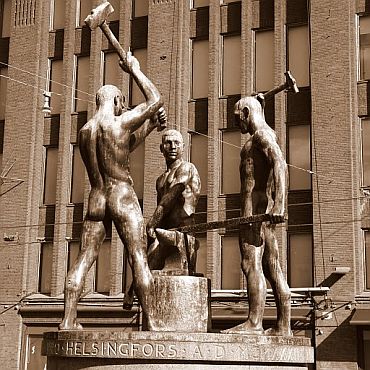
Finland's overall score was unchanged last year, but it moved up two places to 7th in the 2011 GPI because of deteriorations in Norway's and Ireland's scores.
According to the report, Finland's political scene is stable and the country remains free of civil unrest. Relations with neighbouring countries are harmonious and violent crime is very rare -- the score unchanged from last year -- although the homicide rate remains higher than in the other Nordic countries.
Terrorist acts are considered to be highly unlikely, a situation comparable to Estonia, Latvia and Norway.
Since the end of the cold war, Finland has professed a policy of strategic non-alignment and chosen not to apply for NATO membership, despite the fact that the three Baltic states joined in 2004.
Click on NEXT to go further...

Canada's GPI score improved as a result of gains in two indicators and it rose by six places to 8th position.
The report states that 2010 was a quieter year than the previous one on the Canada's arctic front -- in 2009, the Harper government had put a greater emphasis on defending its sovereign claims in the region, straining relations with Denmark (Greenland), Norway, Russia and the US.
Canada's score for the Political Terror Scale, which measures physical integrity rights violations, returned to the lowest possible level.
Offsetting these gains was a slight rise in the likelihood of violent demonstrations, reflecting protests at the G20 economic summit in Toronto in June 2010 and growing discontent in late 2010 and early 2011 with the minority Conservative administration.
Click on NEXT to go further...

Norway's score deteriorated slightly from last year, which contributed to a slide of four places to 9th position, along with improvements in the scores of the Canada and the Czech Republic
The report states that Norway is investing heavily in building its military capability in its far north to protect its arctic territory, its fisheries and oil and gas installations, which partly accounts for the country's relatively high score for the aggregate number of heavy weapons per head.
Norway's volume of transfers of major conventional weapons (as a recipient) increased substantially for the second successive year, according to SIPRI, which analysed the 2005-09 period. The level is among the highest of the 153 countries surveyed.
Relations between Norway and its neighbouring Scandinavian countries, with which it shares a strong cultural and linguistic heritage, are very good. The majority of GPI indicators relating to safety and security point to a harmonious society: violent crime is rare, the political scene is stable and violent demonstrations and terrorist attacks are highly unlikely.
Click on NEXT to go further...
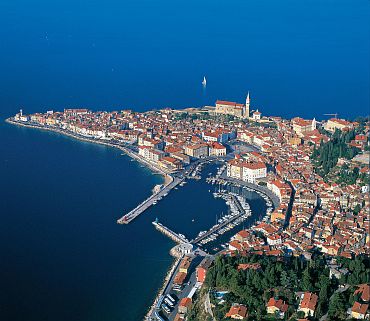
Slovenia's GPI score was unchanged last year but it rose one place to 10th as a result of the deterioration in Ireland's tally amid that country's severe economic and political crises.
Slovenia's GPI score for political instability (1) remains the lowest of the Balkan countries by some margin and it is matched only by Slovakia in the Central and Eastern Europe region.
Several measures of safety and security in Slovenian society receive the lowest possible scores: namely the level of violent crime, the proportion of the population in jail and the rate of homicides, although violent demonstrations are considered to be more likely than in neighbouring Austria.
Click on NEXT to read about the LEAST peaceful nations...
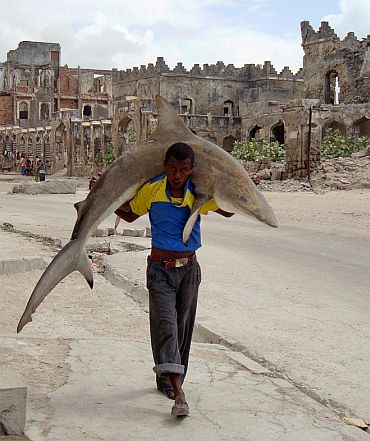
Iraq's gain is Somalia's loss. The latter find itself at the bottom of the list as the least peaceful nation in 2011 because there was a more substantial improvement in Iraq's score, which lifted that country from the foot of the index for the first time.
Much of Somalia remained mired in conflict in 2010 and early 2011 -- the country has not had a nationally functioning state government since its descent into civil war in 1991.
The GPI indicator of internal conflict registered the highest possible score, as the violent confrontation between the TFG and Islamist rebel groups, Hizbul Islam and al-Shabaab continued for the fifth successive year.
The International Maritime Bureau reported a growing number of violent pirate attacks off the coast of Somalia in 2010, with Somali pirates reportedly active further into the Indian Ocean -- the region accounted for 92% of all ship seizures, with 49 vessels hijacked and 1,016 crew members taken hostage.
Figures from the UNHCR and the Internal Displacement Monitoring Centre suggest that around 1.9 million Somalis have been displaced by the ongoing conflicts. This amounts to more than 20 per cent of the population, giving Somalia the highest possible score (5) for this indicator, along with Bhutan, Cyprus, Iraq and Sudan.
Click on NEXT to go further...
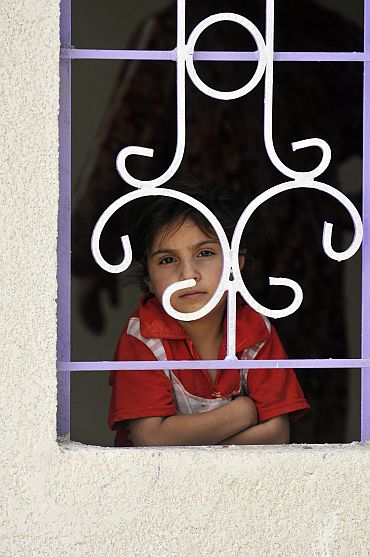
Iraq's score improved substantially in 2011, with gains in several measures of both ongoing conflict and safety and security in society and for the fi rst time the country is not ranked lowest in the GPI.
Iraq's score for political stability improved slightly for the third year running, this year reflecting the fact that in early November 2010 Iraq's bickering political factions reached an agreement to form a national unity government, helping to end an eight-month political impasse.
The indicator of relations with neighbouring countries also underwent an improvement in response to a rapprochement with Syria. Relations with Saudi Arabia, Kuwait and Iran remain tense, however. According to the report, although Iraq's overall security situation can be said to have eased in 2010 and early 2011 and the measure of internal confl ict is downgraded, it remains at a very high level (4.5); tension and violence remain widespread with the exception of the relatively peaceful Kurdishinhabited northern part of the country.
A very high proportion of population is displaced (15.4%, the third-highest in the world, according to data from the UNHCR and the Internal Displacement Monitoring Centre).
Click on NEXT to go further...
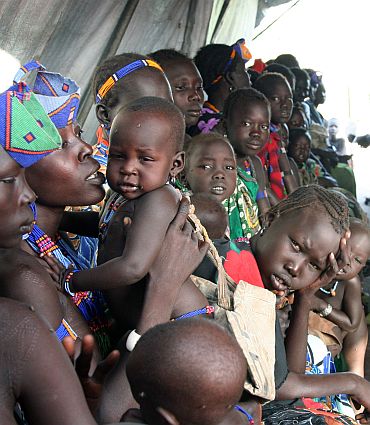
An escalation of the conflict over secession and resources in Sudan's western region of Darfur, as well as heightened tensions in the south ahead of a referendum in January 2011 concerning the possible independence of South Sudan and the future affiliation of the oilrich Abyei province contributed to a deterioration of the country's already high score.
Sudan's GPI scores for the Political Terror Scale remain at the highest possible level, unchanged since 2002, and the homicide rate is also accorded a score of 5.
The UN estimates that up to 300,000 people have died from the combined effects of war, famine and disease since the conflict in Darfur began in 2003. Sudan's government put the death toll at 10,000.
Almost 2.7 million people are estimated to have fled their homes in Darfur alone, while refugees and internally displaced people across the country as a whole are estimated to number almost 5.3 million, 12.8 per cent of the population -- the fourth highest proportion in the 2011 GPI.
Click on NEXT to go further...
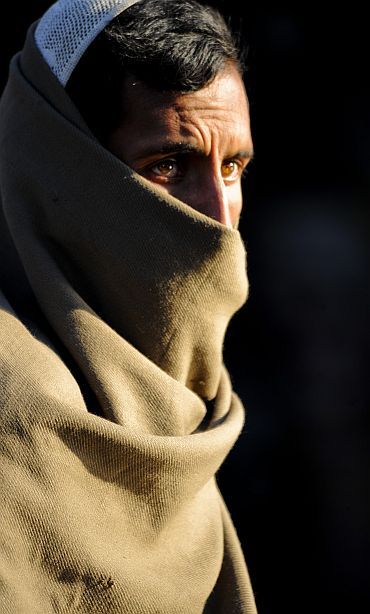
Embroiled in conflict and instability for much of the past two decades, Afghanistan remained far from peaceful during 2010. It was a year of intensified armed conflict, with a surge of activity by pro-government forces and increased use of improvised explosive devices and assassinations by anti-government elements.
The winter of 2010-11 was particularly violent, with 785 insurgent attacks in December.
The GPI measure of the number of displaced people (including refugees) increased to 2.2 million in 2009, a rise of 3.5 per cent year on year, which amounts to 7.8 per cent of the population, one of the highest proportions of the 153 countries surveyed.
Afghanistan's political scene remained unstable in 2010 (the GPI score for this indicator unchanged) in spite of numerous moves by the president, Hamid Karzai, to strengthen his political authority as the controversy surrounding the 2009 presidential election lingered and combined with allegations of electoral frauds in the September 2010 parliamentary election.
Click on NEXT to go further...
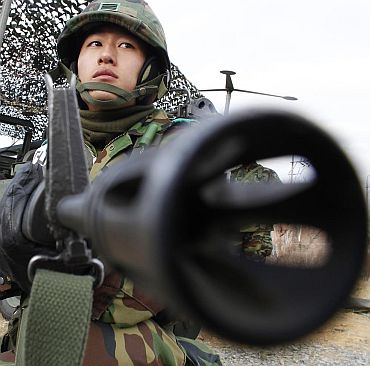
North Korea's score deteriorated sharply last year, with declines in eight indicators spanning security in society and the military sphere.
The sharp increases in the number of homicides and rises in violent crime and the likelihood of violent demonstrations from relatively low levels reflect unconfirmed reports of a dramatic escalation in violence and brutality at the hands of the regime, with public executions tripling last year, to at least 60.
Capital offences were said to include robbery, people-trafficking, illicit use of Chinese mobile phones and unauthorised possession of US dollars.
North Korea's tense relations with its neighbours became even more strained in 2010 (prompting a rise to 5 for the GPI indicator) following the administration's decision in March 2010 to sink a South Korean naval vessel, the Cheonan, and to fire missiles at Yeonpyeong in November one of fi ve South Korean islands in the West (Yellow) Sea, close to North Korea.
Click on NEXT to go further...
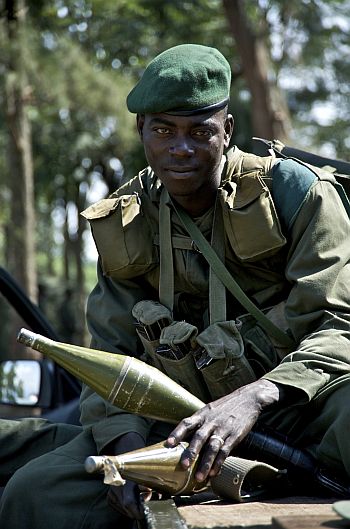
The Democratic Republic of Congo's score deteriorated in 2010 and the country remains among the ten lowest-ranked nations in the 2011 GPI (148th of 153 countries, compared with 140th of 149 nations in the 2010 GPI). The decline is primarily the result of a rise in the number of external and internal conflicts fought.
DRC's score for the number of displaced people as a proportion of the population is relatively low (2) although the UNHCR estimates that in 2010 the total of refugees and internally displaced people amounted to 2.1 million, the disastrous consequence of decades of misrule and violent conflict, including a civil war between 1998 and 2003 that caused as many as 3 million deaths.
DRC's relations with neighbouring countries are again accorded a moderate score (3), which reflects warm relations with Rwanda, cemented by a bilateral summit in Goma in August 2010, and Zambia. Relations with Angola remained tense, however, with an ongoing dispute over the two countries' maritime border and offshore oil.
Click on NEXT to go further...
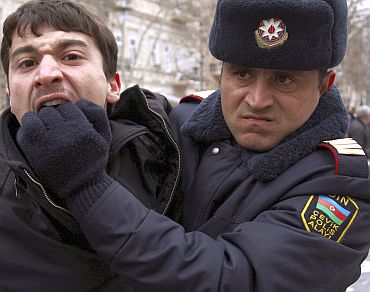
Russia's score improved in the 2011 GPI. The country is ranked 147th of 153 nations (only six other countries are less peaceful), which was also the case in the 2010 GPI. The improved score reflects changes in two indicators: a drop in the estimated number of deaths from external conflict and a rise in political stability.
The former refers to the ending of the conflict between Russia and Georgia over South Ossetia (specifi cally no recorded confl ict-related deaths in 2009-10; in 2008-09 there were 67). The latter reflects Dmitry Medvedev's increasingly strong position as president, illustrated by the dismissal in September 2010 of the powerful mayor of Moscow, Yuri Luzhkov.
One of Russia's indicators deteriorated in the 2011 GPI: the measure of the potential for terrorist acts -- the score for this indicator rose to 4 (a "high likelihood") following a year when the country was hit by several deadly attack.
The homicide rate, number of internal security officers, and the perception of criminality are all accorded scores of 4 "high", unchanged from last year. The International Centre for Prison Studies records that the proportion of the Russian population in jail fell for the third successive year in 2010, but it is still the second-highest of the 153 countries surveyed, behind the US.
Click on NEXT to go further...
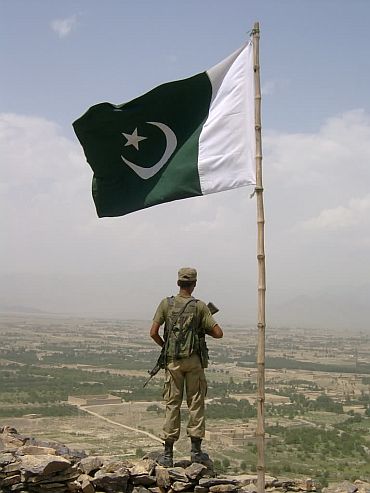
Pakistan's overall GPI score improved markedly in 2010, causing a modest rise in the rankings to 146th place (out of 152 countries, compared with 145th of 149 nations last year).
There was a reduction in the likelihood of violent demonstrations from a very high level and a drop in the level of violent crime to "moderate", in line with an easing of the widespread violence verging on civil war that embroiled much of the country in 2009
In early 2010, President Asif Ali Zardari, claimed that the army had achieved considerable success in its offensive against Tehrik-i-Taliban Pakistan (TTP, an alliance of around a dozen militant Islamist groups based in the country) in the Federally Administered Tribal Areas.
However, the medium-term success of the offensive remains far from assured and heavy clashes between the army and Taliban continued throughout 2010, particularly in the Kurram and Orakzai districts.
The political scene too remained highly unstable in 2010 amid the severe domestic security problems, the floods that devastated large swathes of the country in August-September and fraught foreign relations.
Click on NEXT to go further...
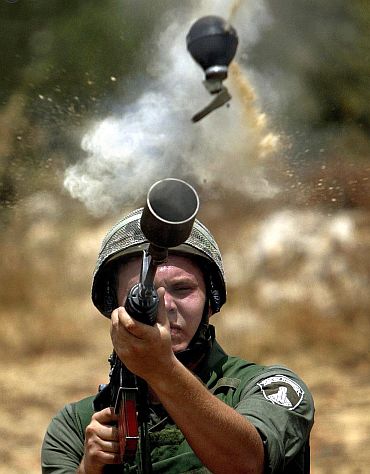
Israel's score improved for the second successive year, taking it to 145th place in the 2011 GPI.
The upturn reflects a drop in the level of internal conflict to "moderate", with a tense truce holding between the Islamist group, Hamas, (which has controlled Gaza since June 2007) and Israeli forces.
The fact that Israel remains in a formal "state of war" with its northern neighbours, Syria and Lebanon, and relations remain tense with much of the Arab world and Iran, the GPI measure of relations with neighbouring countries remained at 4 (aggressive: open conflicts with violence and protests).
The level of violent crime and homicide rate are low, violent demonstrations are unlikely to occur and the political scene is relatively stable. However, the risk of terrorist attacks is high.
Click on NEXT to go further...
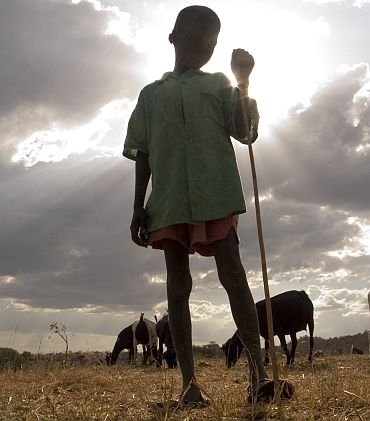
The Central African Republic's score deteriorated sharply last year and it dropped to 144th place, having been ranked above the bottom-ten nations for the past two years.
The risk of terrorist attacks and violent demonstrations increased ahead of the presidential election in January 2011, with fresh violence flaring in the country's remote north-east.
The CAR's indicator of the number of internal and external confl icts fought also increased.
Small arms and light weapons are easy to access in the CAR, but other measures of militarisation, such as the number of armed services personnel per 100,000 people, military expenditure as a percentage of GDP and military capability and sophistication receive low scores.
Click on NEXT to go further...
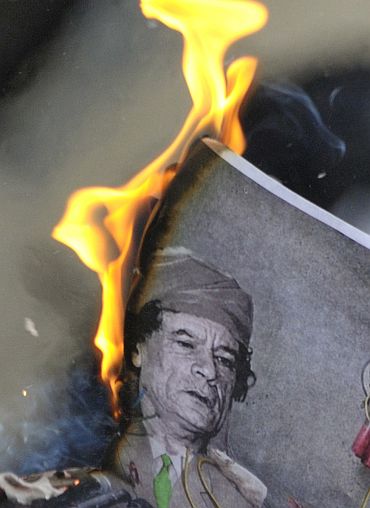
The dramatic rise in Libya's score and the country's plunge in the GPI rankings mirror the nation's extraordinarily rapid descent into civil war in early 2011. The first signs of a popular uprising emerged in mid-February when a small group of demonstrators marched through Benghazi, inspired by the revolutions in neighbouring Tunisia and Egypt.
As the unrest spread rapidly across the country, Libyan leader Colonel Muammar Gaddafi responded with extreme force. By late February, much of the east of Libya had fallen to the opposition forces. Several senior members of the Gaddafi regime defected and some army units have joined the ranks of the opposition.
However, Colonel Gaddafi clearly remains determined to hold on to power at any cost and in early March forces loyal to him had attacked opposition positions in the east of the country and begun to reclaim lost territory.
Not surprisingly, all the qualitative indicators of confl ict and societal safety and security deteriorated sharply from generally low scores -- violent demonstrations were, for example, considered highly unlikely to occur under Colonel Gaddafi's repressive regime as recently as January 2011.
Click on NEXT to go further...
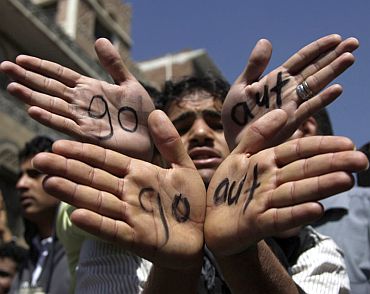
Protests in Bahrain calling for economic and political reform began on February 14, 2011 and gathered momentum after two protesters were shot in the first two days.
In an extraordinary escalation, on February 18, the army was deployed on the streets of central Manama, the capital. Troops fired live ammunition at protesters who gathered there -- a sudden escalation of violence in a small, peaceful country with a low crime rate that was reflected in its position around the midpoint of the GPI in previous years.
The dramatic events of February and March, inspired by the unprecedented "Arab Spring", led to sharp increases to most of the qualitative indicators of conflict and safety and security in society, precipitating a slide in the rankings to 123rd position
Click on NEXT to go further...
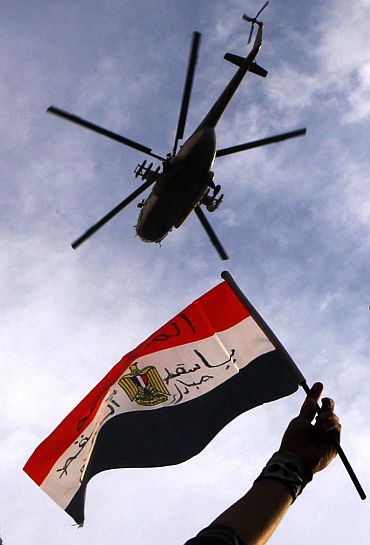
The dramatic resignation of the long-serving president, Hosni Mubarak, on February 11 after 18 days of popular protests calling for an end to his regime was an event unparalleled in the modern history of Egypt.
Mubarak remained defiant until the very end and was fi nally forced to resign by the military, which had maintained its neutrality throughout the demonstrations. The Supreme Council of the Armed Forces, which has assumed the president's responsibilities, vowed to oversee a transition process leading to new elections and the installation of a civilian administration.
The extraordinary events in Cairo's Tahrir Square have been reflected in upward shifts in three qualitative GPI measures of internal conflict, violent crime and political instability, all from low levels.